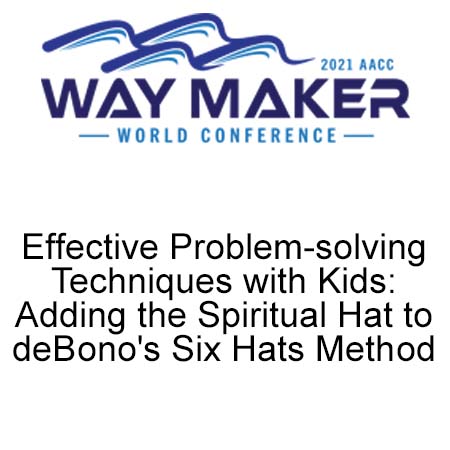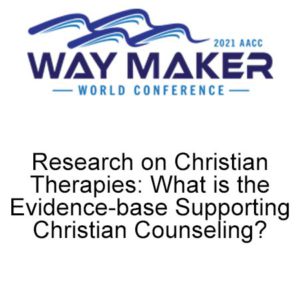Description
309: Effective Problem-solving Techniques with Kids: Adding the Spiritual Hat to deBono’s Six Hats Method
Jacqueline Wirth, Ph.D.
Liberty University
1971 University Blvd.
Lynchburg, VA 24515
Summer Perhay-Kuba, Ph.D.
Liberty University
1971 University Blvd.
Lynchburg, VA 24515
Kerry Bowles, M.Ed.
Liberty University
1971 University Blvd.
Lynchburg, VA 24515
Summary
School counselors are often designated as the lead in group conferences of other educators, parents, and stakeholders when meeting to discuss student or school issues. Like those who work with children and youth, the school counselor assists and leads in the information gathering and problem-solving collaborative processes when working with children and youth in a school setting (ASCA, 2019). Using the metaphor of wearing different colored hats, a model designed by Edward deBono (1985) immensely augments critical thinking and problem-solving during these collaborative conferences. “Wearers” of the hats bring different perspectives to these conferences. The six hats are Blue Hat (process), White Hat (facts), Red Hat (feelings), Green Hat (creativity), Yellow Hat (benefits), and Black Hat (caution). These perspectives make way for stakeholders to become unstuck from rigid or dichotomous thinking to reach win-win solutions during their meetings (deBono, 1999). The demonstration adds a seventh hat, Gold Hat (the spiritual hat), to deBono’s Six Hats method. The addition of the Gold Hat allows meeting stakeholders to give thought to the spirit of individuals and groups as they approach planning and problem-solving. The deBono’s Six Hats method (deBono, 1999) can be used in settings other than the school venue and can generalize to different situations. This clinical demonstration will provide the opportunity for participants to use deBono’s Six Hats method (deBono, 1999) with the addition of the Seventh Spiritual Hat. During a mock problem-solving exercise, participants will gain skills to perk up collaborative conferences and meetings, allowing them to describe and analyze the method as they link its use to their settings.
Learning Objectives
Participants will:
• Analyze the foundational principles of deBono’s Six Hats Method (deBono, 1985) while analyzing the purpose of the seventh (spiritual) hat
• Demonstrate skills in a mock group meeting as they identify, use, and analyze each individual hat for use during group meetings and conferences
• Critique the purpose of the Six Hats Method plus the seventh (spiritual) hat for use of the method in various group meeting settings for licensed mental health professionals





